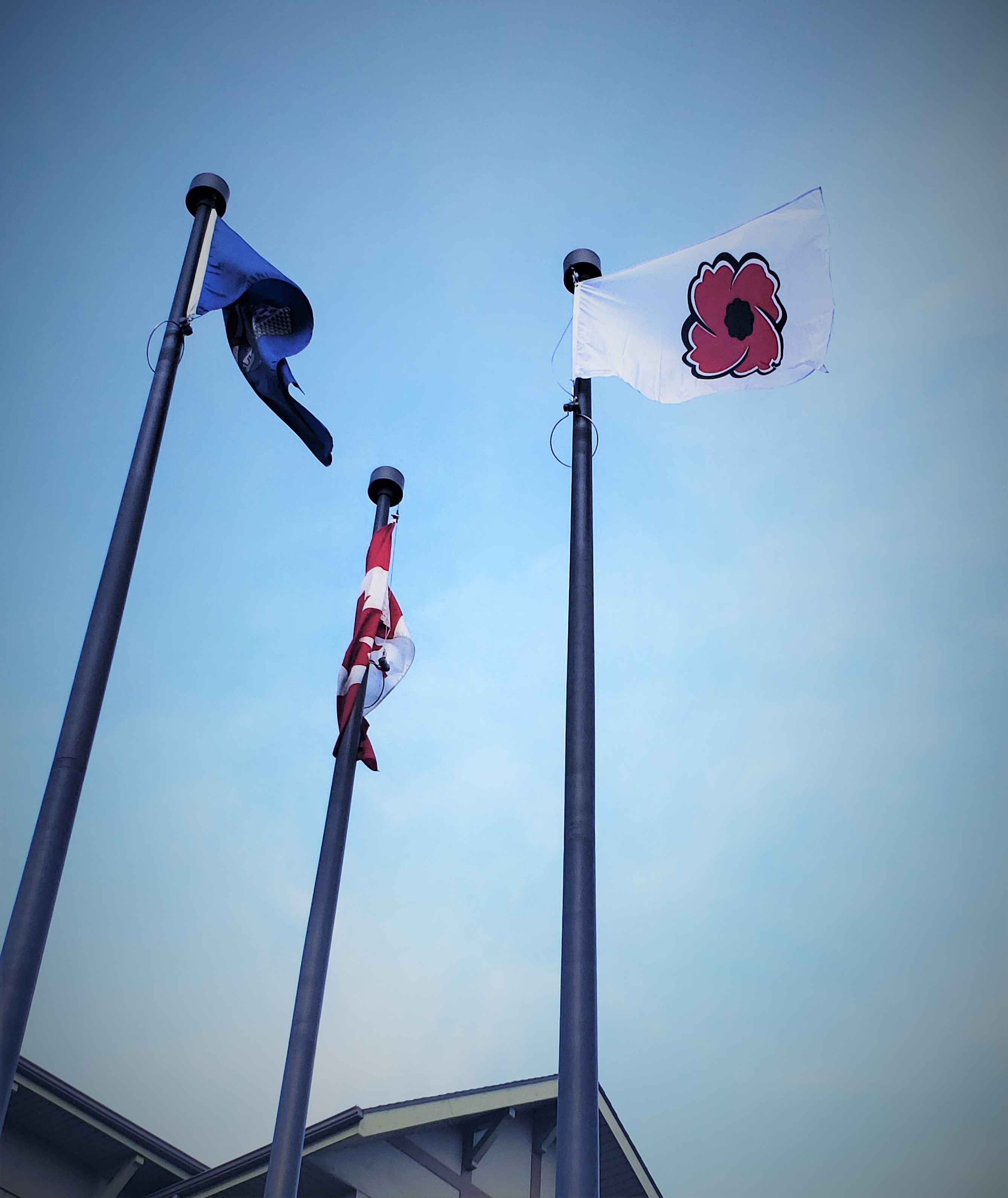
The Royal Canadian Legion Poppy Flag is now flying at the entrance to East Village until November 11. (Photo: UAlberta)
For some people, it may just be a flag, but for more than 33,000 Albertans and 260,000 Canadians, the flag is a symbol of hope, education, food and even shelter.
The University of Alberta raised the official Poppy Flag on November 1 to recognize The Royal Canadian Legion and its members-veterans and military who risked their lives for our country and continue to serve us today.
"The Royal Canadian Legion is Canada's foremost advocacy and assistance organization for veterans," said David Turpin, president, University of Alberta. "They have also been a partner of the university for the past 70 years. We, as a community, proudly raise this flag as a symbol of support for Canada's veterans."
Leading up to Remembrance Day, the flag, which was raised for the first time since the partnership began in 1952, flies at the entrance to campus in the East Village until November 11 to help raise awareness of the Legion's Poppy Campaign.
With over $700,000 donated in just the last 10 years alone, the Legion has made possible the creation of military and veteran programming that allows the university to continue to serve those who serve Canada.
The Royal Canadian Legion has played an integral role in University of Alberta and Faculty of Rehabilitation Medicine military and veteran initiatives, including the Heroes in Mind, Advocacy and Research Consortium (HiMARC), which launched this year.
"The flag raising means a lot to me as a U of A student and a member of the Canadian Armed Forces," said Hope Winfield, MSc in Rehabilitation Science student and military padre. Winfield is also a member of HiMARC, completing her master's research under the supervision of Suzette Bremault-Phillips, director of HiMARC. "As a founding partner of HiMARC, the Legion has allowed us to further our research programs, such as 3MDR, virtual reality to treat PTSD. HiMARC continues to expand this research to serve military, veterans, public safety personnel and their families."
"Every day we work to change the lives of veterans for the better. All too often, veterans leave the Canadian Armed Forces and face daily challenges directly related to their service. These challenges can be employment, housing, income insecurity and social integration due to physical and mental health," said Tammy Wheeler, executive director, The Royal Canadian Legion, AB-NWT Command. "We are proud to play an integral role in HiMARC as they work to address some of the mental and emotional challenges that come from experiencing traumatic events-challenges that can hinder a successful civilian life for many veterans."
This year, the Legion's Poppy Campaign, which is the organization's largest fundraising initiative, is running from October 25 to November 11. All proceeds go directly toward supporting Canada's veterans and their families.
"The Royal Canadian Legion has been a partner of the Faculty of Rehabilitation Medicine for over 65 years, providing bursaries to two of our students from the very first physical therapy class of 1956. And their support has not only continued since then, but it has grown by leaps and bounds," said Bob Haennel, dean, Faculty of Rehabilitation Medicine. "We are extremely grateful to the Legion and all they have provided, not only to us, but to the military members and veterans who have given everything for our freedom and safety."
To learn more about The Royal Canadian Legion's Poppy Campaign and to donate, visit their website.